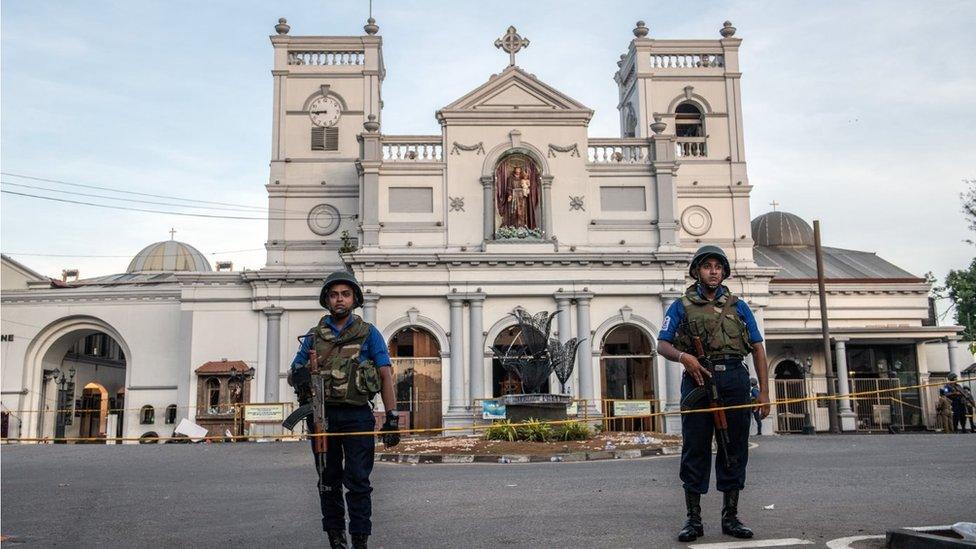Sri Lanka: Why are people there protesting in the streets?
- Published
- comments
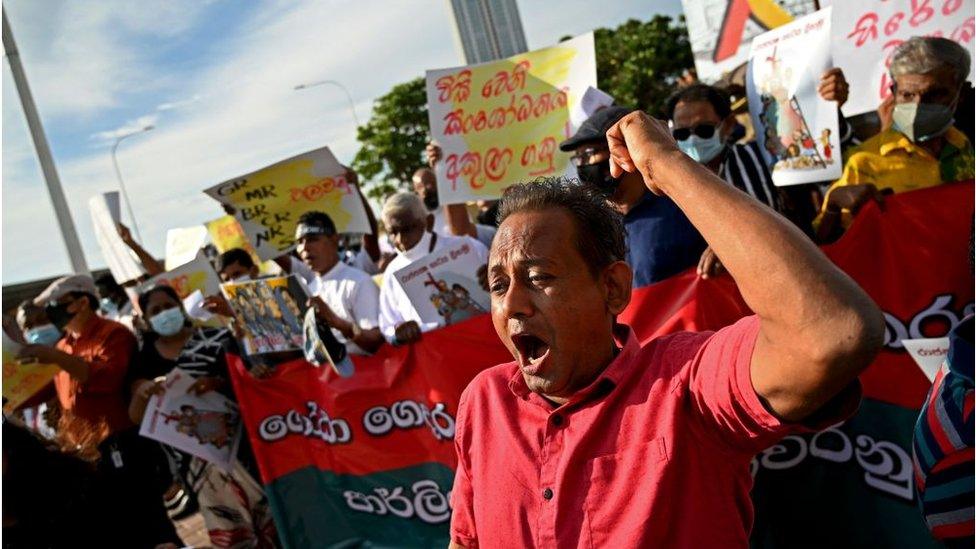
Sri Lankans took to the streets in early April demanding President Rajapaksa's resignation
Thousands of people in Sri Lanka, an island in South Asia, have taken to the streets in recent days to protest about living conditions there.
The nation is facing its worst economic crisis since gaining independence from the UK in 1948 and is facing food shortages, rising prices and power cuts.
Many say the government is to blame and they are calling for the Sri Lankan President, Gotabaya Rajapaksa, to quit his job.
Read Newsround's guide to find out more about Sri Lanka and what's happening there.
Why are Sri Lankans protesting?
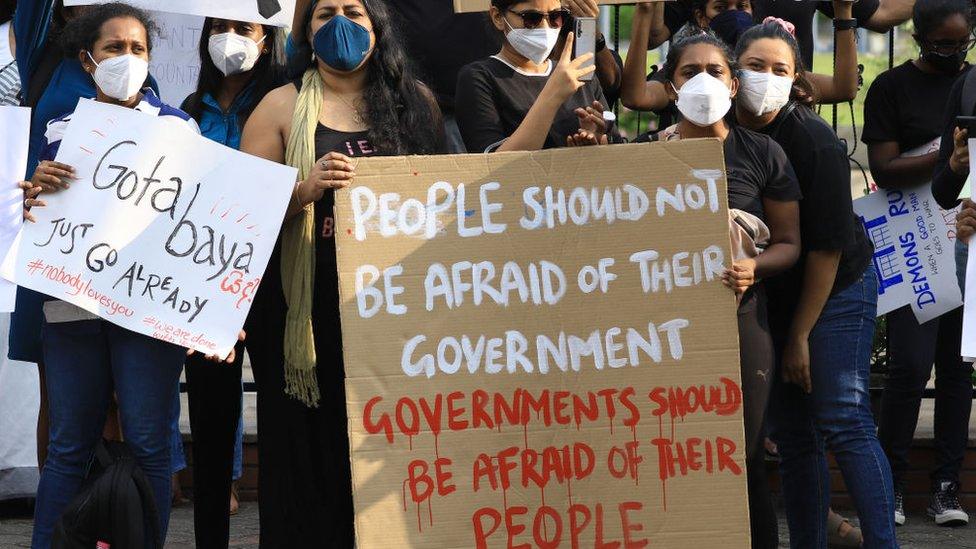
Sri Lankans shout slogans demanding the Sri Lankan president Gotabaya Rajapaksa to step down
Mass protests started in early April across the country because the cost of living has become unaffordable.
People are paying up to 30% more for food compared with a year earlier, which has led to some people having to cut down not only on what food they buy, but also the number of meals they eat every day.
Shortages of fuel have seen long lines at petrol stations, while the crisis has also hit public transport services.
"Earlier I used to get a bus in 15 minutes, now I have to wait one to two hours. Sometimes the bus stops midway with no fuel." one woman told the BBC.
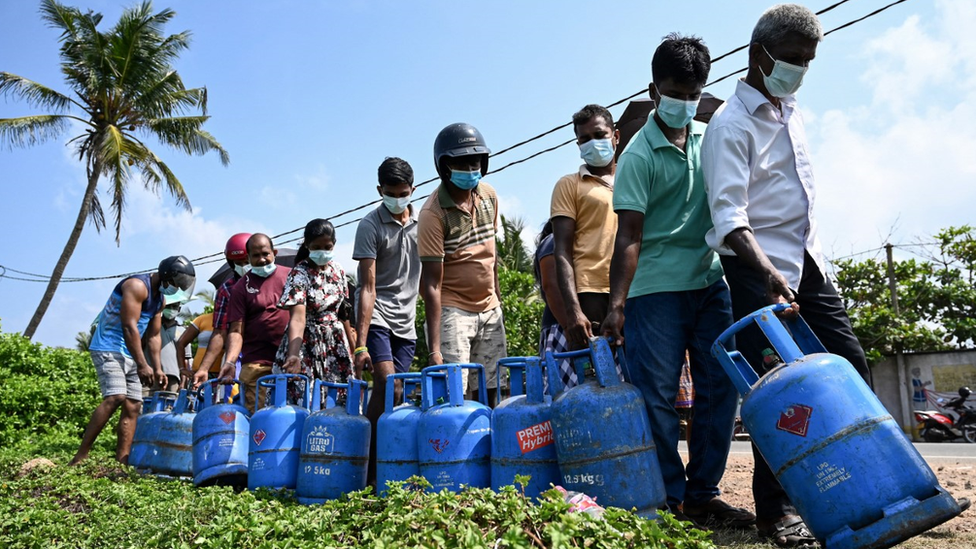
There have been long queues for liquid petroleum gas as the amount of fuel available drops
Protestors blame President Rajapaksa for the economic problems and have called for him to resign, which he has refused to do.
As demonstrations grew, the president declared a state of emergency, brought in rules to keep people indoors at night and a ban on social media. However, when these failed to keep protesters off the streets, he removed the measures.
President Rajapaksa then sacked everyone in his top team apart from the prime minister, Mahinda Rajapaksa, who is his brother.
The president asked opposition Members of Parliament (MPs) to help form a new government, but they have refused.
Why is there an economic crisis in Sri Lanka?
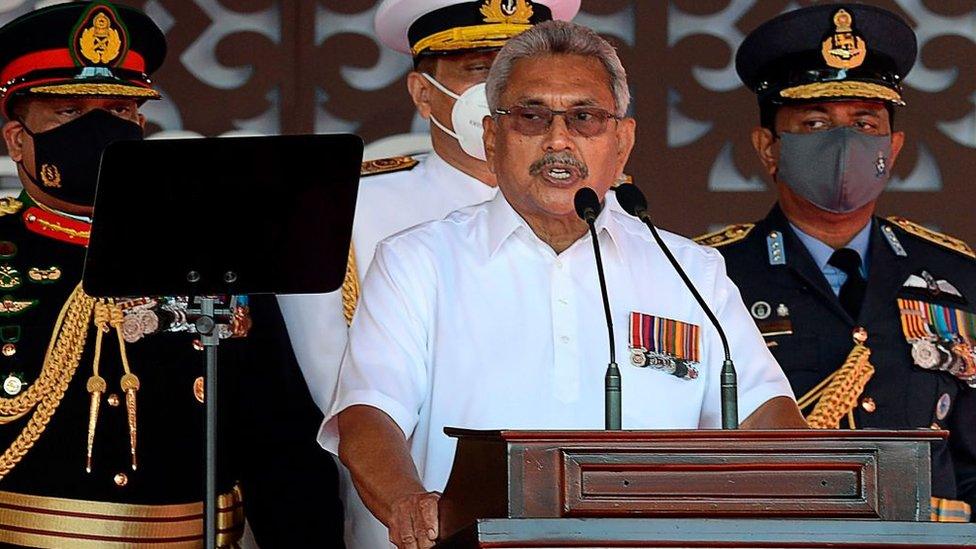
President Gotabaya Rajapaksa (middle) has so far refused to step down despite recent widespread protests
Sri Lanka's problems come down to the fact that its foreign currency reserves are running out.
This is the amount of gold or money in foreign currencies - for example, British pounds or US dollars - that a country has in the bank at a particular time to help them pay for things they get from abroad.
It means Sri Lanka cannot currently afford to pay for basic foods and fuel, which it buys and imports from other countries.
This has led to shortages, very high prices and power cuts for several hours a day.
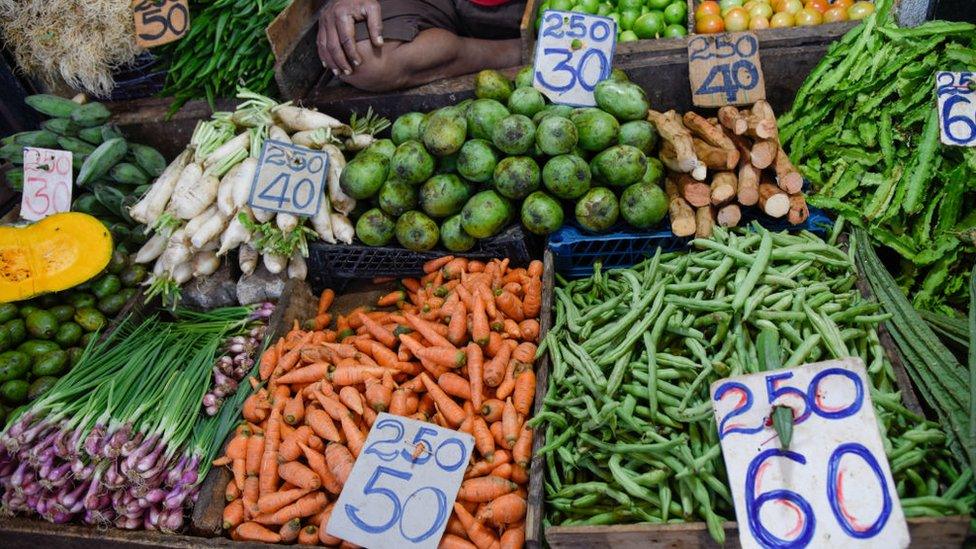
The cost of living has skyrocketed in Sri Lanka, with food costing up to 30% more than a year earlier
The government blames the coronavirus pandemic, which stopped tourists coming to Sri Lanka - one of the island's most important ways of earning money.
It also says tourists were frightened off by a series of bomb attacks on churches three years ago.
However, many experts says the economic crisis has not been dealt with by Sri Lanka's various governments over the last few decades.
It failed to find new ways of making money and has heavily relied on selling tea, clothing and tourism, as well as importing lots of goods from abroad.
Instead of dealing with the issues, government's including Mr Rajapaksa's continued to borrow money from countries like China, leaving Sri Lanka with billions of dollars of debt to pay back.
- Published10 June 2021
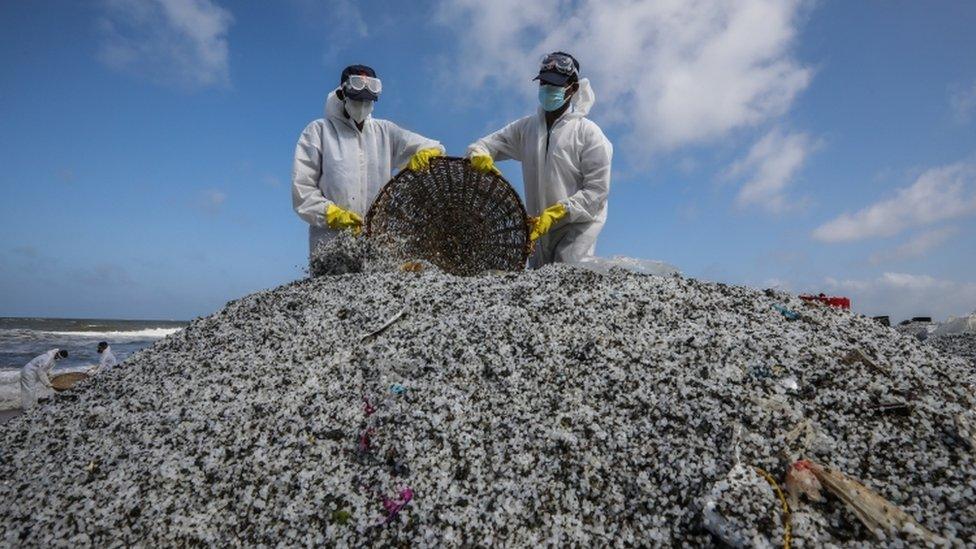
- Published3 June 2021
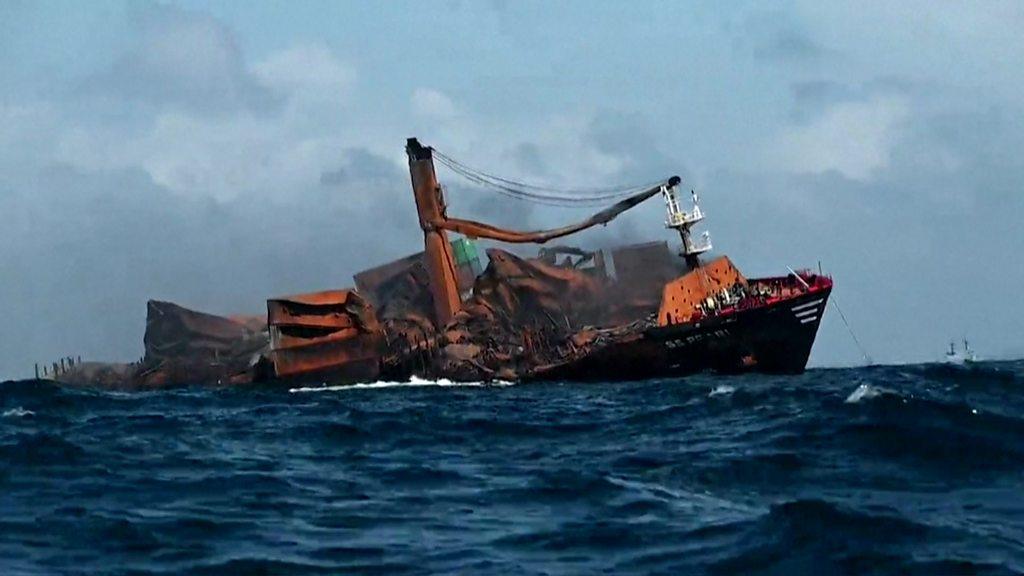
- Published23 April 2019
